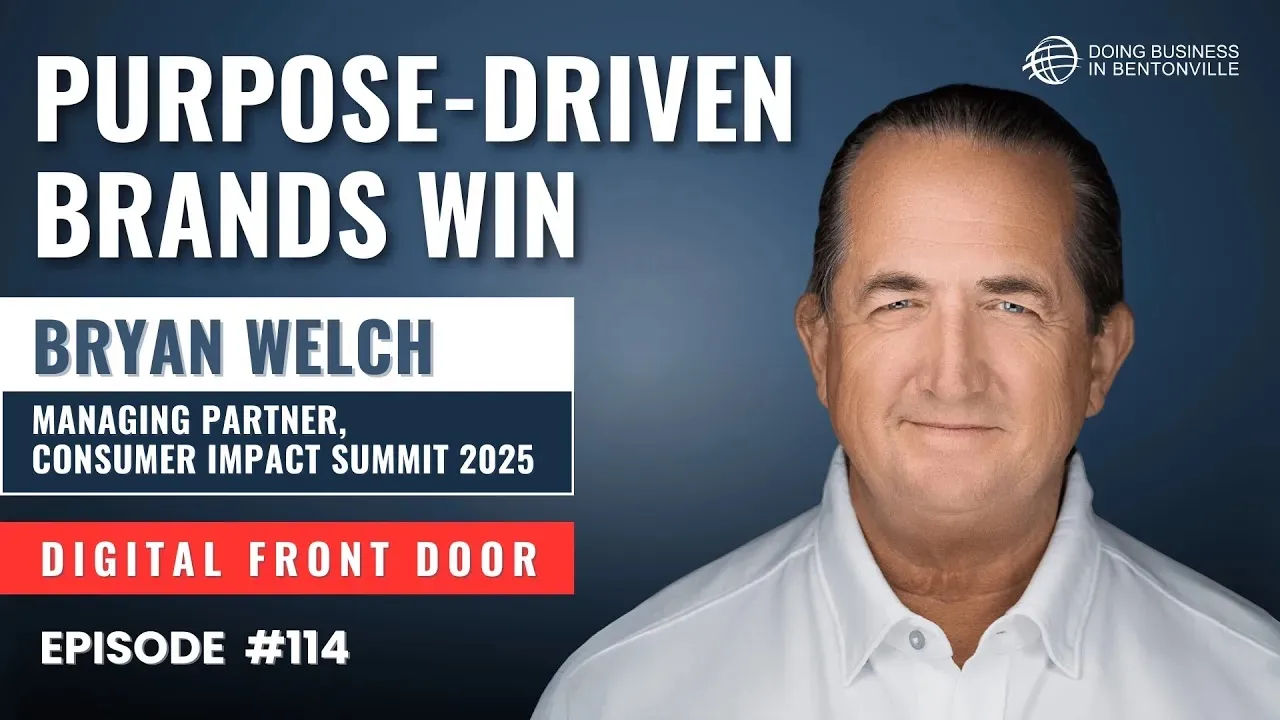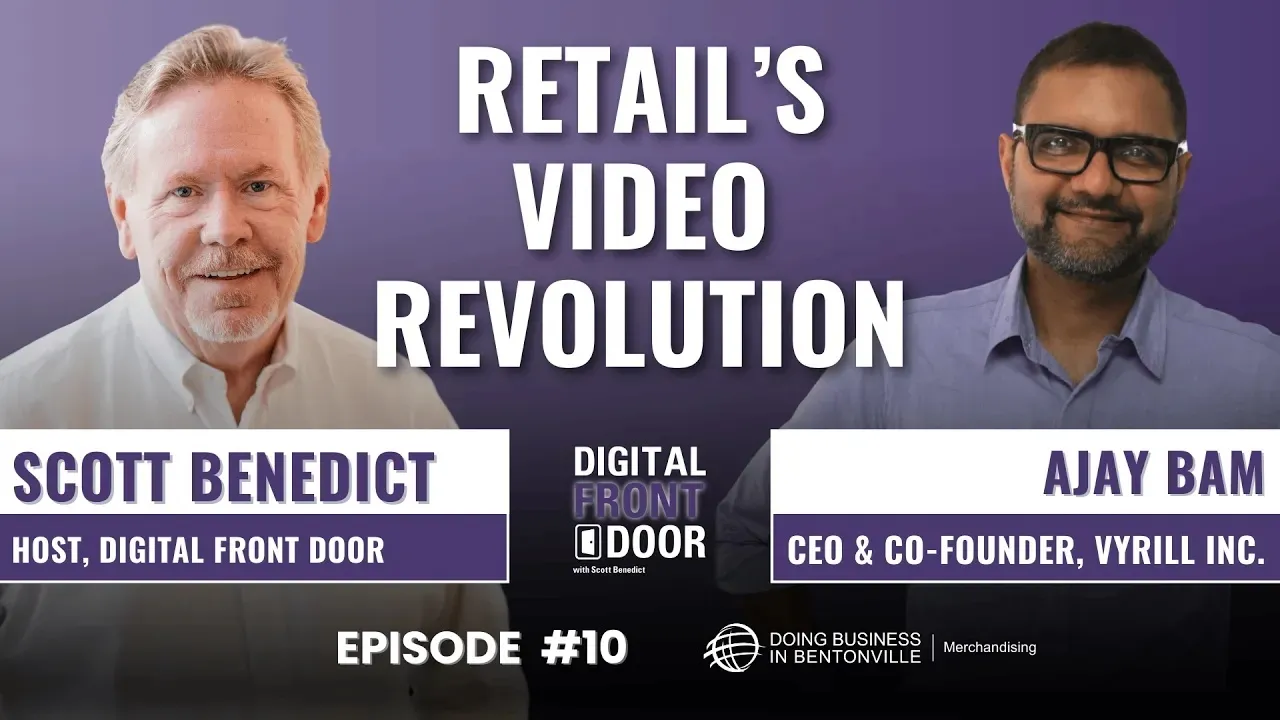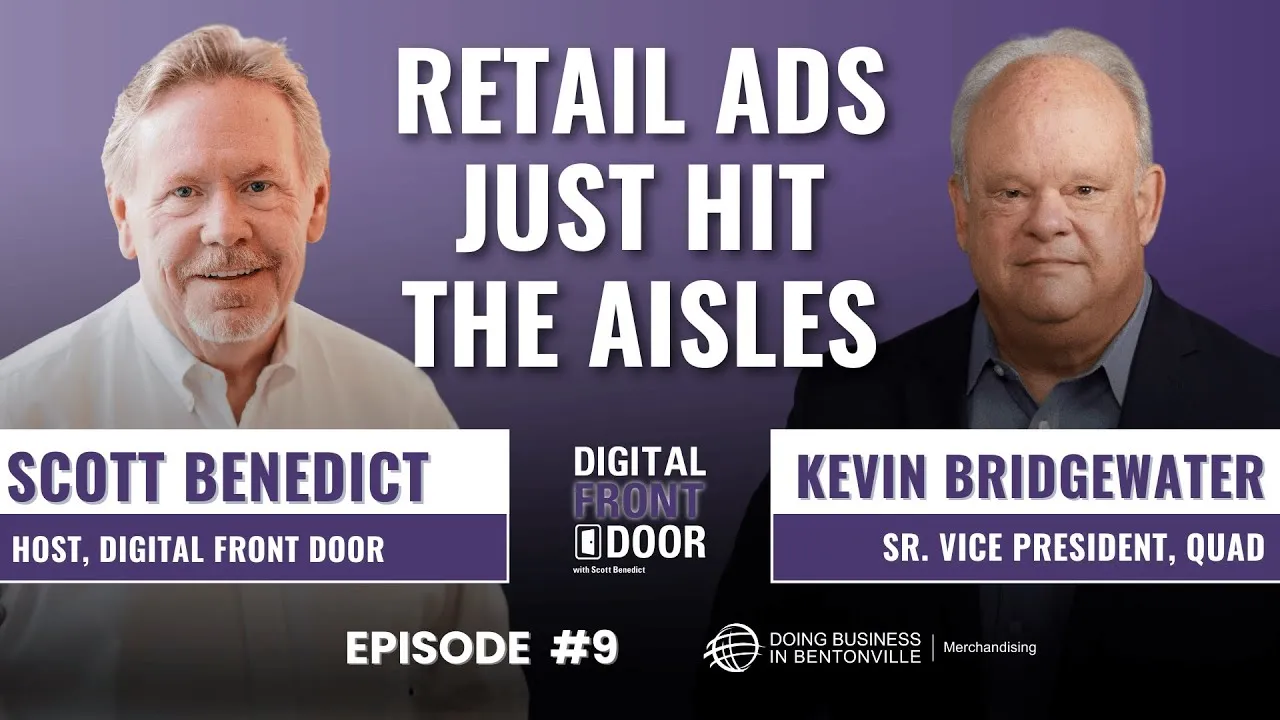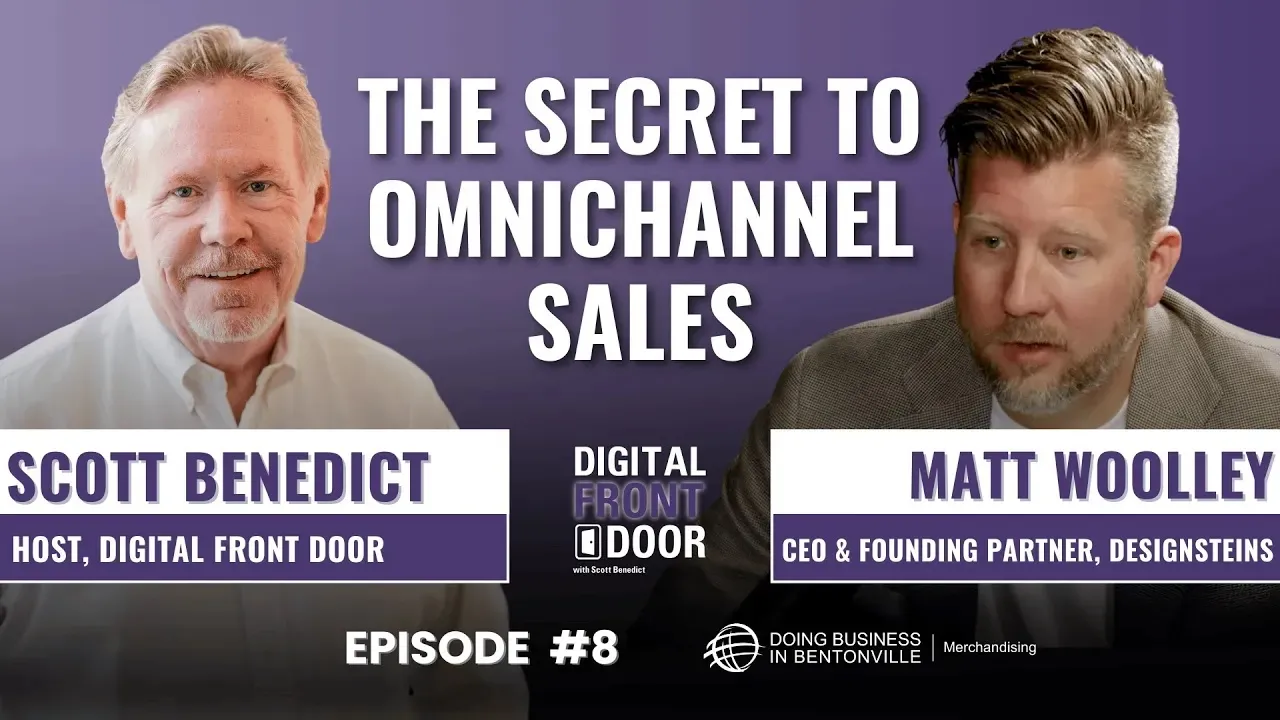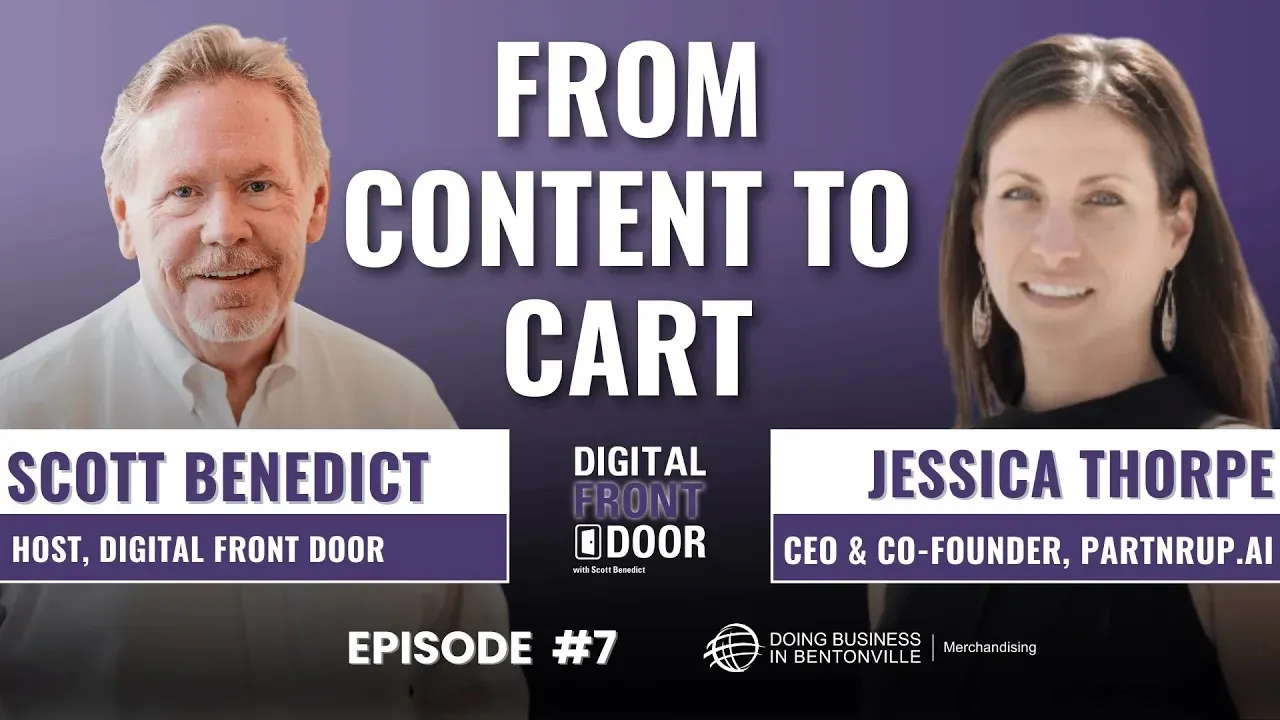The business landscape is transforming before our eyes. What began as marketing buzzwords—sustainability, transparency, and brand purpose—have rapidly evolved into essential elements of successful commerce. But why this shift, and what does it mean for the future of retail?
In this illuminating conversation, Scott Benedict welcomes Bryan Welch, a veteran media and brand leader spearheading the Consumer Impact Summit coming to Bentonville this September. Together, they explore how purpose-driven commerce is reshaping consumer expectations and business practices worldwide. Welch offers a fascinating perspective: business as a concept is relatively young—only about 250-300 years old—and has been in a kind of "adolescence" where maximizing profit was the sole priority. Now, as consumers demand more, business is maturing into a more conscious, multifaceted approach.
The discussion reveals how younger generations are fundamentally changing the retail equation. Gen Z and Gen Alpha consumers rarely make purchasing decisions without considering broader impacts, and they're willing to forego products entirely if they believe consumption would harm society or the environment. Meanwhile, digital platforms have democratized access to consumers, allowing purpose-driven brands to share compelling stories directly with their audience. As Welch aptly notes, "Today every company is a media company," and those with authentic missions have particularly powerful stories to tell.
The Consumer Impact Summit (September 16-18 at The Ledger in Bentonville) will bring together approximately 300 attendees and 45 speakers from companies ranging from multinationals to innovative startups. Topics will include sustainable supply chain management, impact-focused financial relationships, innovations in packaging, and more—all centered on the belief that commerce can and should make a positive difference in the world.
Want to be part of the retail revolution that's creating positive change? Join forward-thinking leaders at the Consumer Impact Summit and discover how your business can thrive while making a meaningful impact. Register at consumerimpactsummit.com
More About this Episode
The Rise of Purpose-Driven Commerce: Why Sustainability, Storytelling, and Consumer Trust Define the Future of Retail
In today’s fast-evolving marketplace, the intersection of commerce, sustainability, and purpose is no longer optional; it is essential. The conversation around purpose-driven commerce has accelerated in recent years, fueled by shifting consumer expectations, advances in digital retailing, and the growing influence of younger generations who prioritize values in their purchasing decisions.
At the heart of this movement is the recognition that commerce can be a force for good. That belief is driving events like the upcoming Consumer Impact Summit, set for September 16–18 in Bentonville, Arkansas. The summit brings together brand leaders, retailers, entrepreneurs, and investors who believe in using business not just to generate profits but also to improve lives, communities, and the planet.
As explored in a recent conversation with Bryan Welch, a veteran media and brand leader and one of the key voices behind the Consumer Impact Summit, purpose-driven business is not just an idealistic notion; it’s becoming the new standard for consumer products and retail.
From Buzzwords to Business Fundamentals
Terms like sustainability, transparency, and brand purpose were often dismissed as marketing trends. Today, they are fundamental to consumer trust and loyalty. Brands that fail to embrace them risk losing relevance.
Welch frames it powerfully: business as we know it is still young, only a few centuries old, and has operated in a kind of “adolescence,” prioritizing shareholder value above all else. But consumers are rewriting the rules. They increasingly demand that businesses consider a broader bottom line:
- Impact on people, employees, suppliers, and communities.
- Impact on the planet, environmental sustainability, and responsible sourcing.
- Impact on trust, authentic, transparent brand relationships.
For retailers and consumer product companies, this shift is seismic. The mantra of “doing well by doing good” is no longer aspirational; it’s a business imperative.
Why Northwest Arkansas Matters
When considering where to host a summit on purpose-driven commerce, Northwest Arkansas may not be the first place that comes to mind. Yet, as Welch notes, it’s one of the most vibrant business communities in the world, particularly for consumer products.
The region’s unique ecosystem, anchored by global retail giant Walmart, has become a hub for entrepreneurs, startups, and established brands alike. It is also fertile ground for conversations about sustainability and values-based commerce.
The Consumer Impact Summit will bring together around 300 attendees and 45 speakers, ranging from multinational corporations like Danone and Mondelēz to innovative startups such as:
- Gnargo, a Bentonville-based company transforming discarded bicycle frames into innovative cargo bikes, including models designed to carry wheelchairs.
- LIVSN in a sustainable outdoor apparel company and is newly certified B Corporation.
- Onyx Coffee Lab is a fast-growing coffee brand known for ethical sourcing and transparency.
This blend of established players and emerging innovators creates fertile ground for collaboration and learning.
B Corporations and the Rise of Accountability
A major driver behind the summit is the B Corporation movement. Certified B Corps are businesses independently verified for their positive impact on workers, communities, customers, and the environment.
When Welch certified his first B Corp back in 2008, there were only a handful of such companies, he recalls his being the eighth. Today, there are over 7,000 B Corps globally, spanning industries from food and fashion to finance and technology.
The rapid growth of the B Corp community illustrates a larger trend: accountability and values-driven practices are no longer niche; they are going mainstream.
The Consumer as a Catalyst for Change
Perhaps the most important force behind purpose-driven commerce is the consumer. Research consistently shows that younger generations, particularly Gen Z and Gen Alpha, are making buying decisions with values in mind.
Key insights include:
- Values as a filter: Many young consumers will not purchase from companies they perceive as harmful to the environment or exploitative toward people.
- Willingness to sacrifice: Unlike previous generations, they are often prepared to do without rather than compromise their principles. Examples include choosing public transportation or biking over owning a car, or seeking plant-based alternatives to reduce environmental impact.
- Demand for transparency: They expect brands to share how products are made, sourced, and delivered, and they reward those that are upfront about challenges as well as successes.
This shift in consumer mindset has created a business environment where values and profits are not at odds; they are intertwined.
Storytelling as a Growth Engine
One of the most profound changes in the retail landscape has been the democratization of marketing. Thanks to e-commerce and digital platforms, every company is now a media company.
Welch emphasizes that purpose-driven companies have an advantage here because their stories are inherently compelling. For example:
- A chocolate brand sourcing cacao from fairly paid farmers in Belize.
- A coffee company investing in its growers and publishing its sourcing data.
- An apparel startup committed to recycled materials and ethical supply chains.
These stories resonate not only because of the product but because of the values behind it. When shared authentically through digital channels, they can build communities of loyal customers who feel personally connected to the brand’s mission.
This ability to blend storytelling with commerce gives purpose-driven businesses a powerful growth engine, often outpacing traditional advertising.
Building Better Supply Chains and Financial Ecosystems
At the Consumer Impact Summit, conversations won’t stop at marketing. Attendees will explore practical, structural issues at the heart of business operations, including:
- Supply chain management ensuring ethical sourcing, fair labor, and environmental stewardship.
- Financial relationships rethinking where money “spends the night” and whether banks and investors are aligned with sustainability goals.
- Packaging innovations reducing plastics and embracing new recyclable or compostable materials.
These discussions highlight a key theme: purpose-driven commerce isn’t just about consumer-facing narratives, it’s about aligning every aspect of the business model with values.
Networking, Inspiration, and Collective Energy
While the summit promises rich content and actionable insights, Welch believes the most valuable takeaway will be relationships. By connecting purpose-driven businesses from Northwest Arkansas with like-minded companies around the globe, the event aims to accelerate innovation and collaboration.
Equally important is inspiration. Purpose-driven businesses are led by people who take risks, pioneer new solutions, and persist despite challenges. Their stories not only provide best practices but also renew energy and motivation for others walking the same path.
Career Advice for the Next Generation
For students and young professionals considering careers in retail or consumer products, Welch’s advice is clear:
- Know what matters to you. Identify the values you want to serve.
- Seek purposeful work. Choose opportunities that align with those values.
- Avoid toxic environments. Don’t work for “bad people,” no matter how attractive the job may seem.
Purpose-driven careers are not just about financial success. They offer joy, fulfillment, and the satisfaction of making a tangible difference in the world.
Why Purpose-Driven Commerce Is the Future
The rise of purpose-driven commerce is not a passing trend. It reflects a profound cultural and economic shift:
- Consumers expect companies to take responsibility for their impact.
- Digital tools give even small brands global platforms to share their values.
- Investors and retailers are recognizing that sustainable, ethical businesses are also resilient and profitable.
For businesses, the message is clear: those who embrace purpose will thrive, while those who ignore it risk falling behind.
The Consumer Impact Summit is one step in building this future, a place where ideas, people, and practices converge to shape a more sustainable, transparent, and impactful global marketplace.


